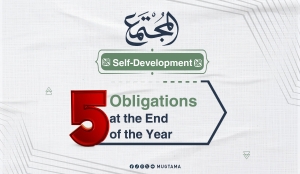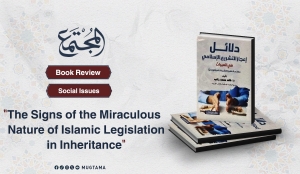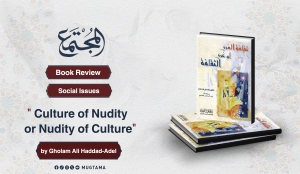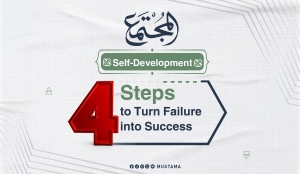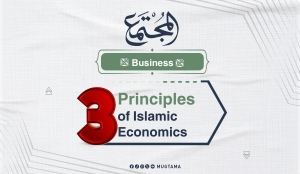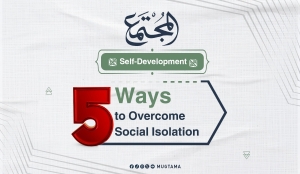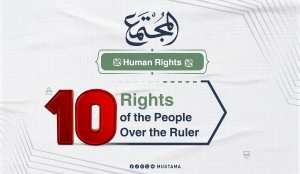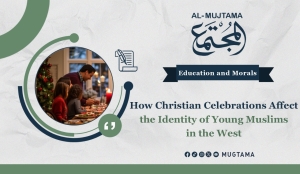Hadeel
5 Obligations at the End of the Year
January 05, 2025An hour passes, a day runs its course, a month goes by, a year ends, and a lifetime fades away. In these moments, a fetus develops, a child is born, a boy grows, a youth matures, an old man ages, and a senior passes away. Everything has a beginning and an end, and every first has a last.
Allah has made the passing of time and the end of years a reminder of the passage and end of life itself. Therefore, at the close of each year, we must pay attention to the following:
1- Reflecting on the passage of time:
Days pass quickly, and it is hard for a person to stay in one condition for a long time. Childhood passes swiftly, youth ends suddenly, then middle age comes, and a person finds that their entire life feels like just an hour of daylight. Allah says: “As though they had not remained [in the world] except an hour of a day.” (Al-Ahqaf: 35). Whoever realizes this should reflect and understand that everything has an end, and every person should strive to make the end of their life a good one.
2- Accountability of the self:
A Muslim should not let any day pass without sitting with themselves for a while to account for their actions, correct what they have ruined, or repent for what they have missed in terms of good deeds. The need for daily self-accountability comes from human nature and forgetfulness. If a person does not account for themselves, they might forget their actions, only recalling them when it becomes too difficult to amend or when the time for repentance has passed. The difficulty of rectification arises from old age and the weakening of the body, and the impossibility of returning to repentance comes when death arrives or on the Day of Judgment. Allah says: “And spend [in the way of Allah] from what We have provided you before death approaches one of you and he says, ‘My Lord, if only You would delay me for a brief term so I would give charity and be among the righteous’. But never will Allah delay a soul when its time has come. And Allah is Acquainted with what you do.” (Al-Munafiqun: 10-11), and also: “And they will cry out therein, “Our Lord, remove us; we will do righteousness – other than what we were doing!” But did We not grant you life enough for whoever would remember therein to remember, and the warner had come to you? So taste [the punishment], for there is not for the wrongdoers any helper.” (Fatir: 37).
The general accountability of the self alleviates the reckoning on the Day of Judgment, as the individual will rectify what they missed of good deeds and repent for their wrongdoings. This is reflected in the words of Ibn al-Athir, quoting Umar ibn al-Khattab: “Take account of yourselves before you are taken to account, for it is easier for your reckoning, and weigh your deeds before they are weighed for you, and prepare yourselves for the great presentation.” (1)
3- Seizing the opportunity of time:
The Prophet Muhammad (peace be upon him) encouraged seizing time, as narrated by Al-Hakim and others, where Ibn Abbas said that the Prophet (peace be upon him) said to a man while advising him: “Utilize (take advantage of) five before five: your youthfulness (before old age), your wellbeing (before sickness), your richness (before poverty), your free time (before being occupied/busy), and your life (before death).”
The companions and the early generations were very diligent about making the most of their time. Ibn Mas’ud said: “I have never regretted anything like I regret a day when the sun sets, and my lifespan has decreased but my deeds have not increased.” Al-Hasan al-Basri said: “There is no day that breaks its dawn except that it calls out, ‘O son of Adam, I am a new creation, and I will testify for or against your deeds. So take provisions from me, for when I pass, I will never return until the Day of Judgment.’” He also said: “I saw some people who were more concerned about their time than you are about your wealth and money.” Umar ibn Abd al-Aziz said: “The night and the day work upon you, so you should work upon them.” (2)
4- Good endings:
The Prophet (peace be upon him) said, as narrated by Bukhari: “(the rewards of) the deeds are decided by the last actions (deeds).” If actions are judged by their endings, every Muslim should strive to make the end of their deeds good, as one will be resurrected as they died. In Sahih Muslim, Jabir narrated: “I heard the Prophet (peace be upon him) say: ‘Every servant will be raised (in the same very state) in which he dies.’” Good endings are related to good endings of years and days. A person dies every night in their sleep, but this is the minor death, which they return from when they awaken, if Allah wills. Allah says: “Allah takes the souls at the time of their death, and those that do not die [He takes] during their sleep. Then He keeps those for which He has decreed death and releases the others for a specified term. Indeed in that are signs for a people who give thought.” (Az-Zumar: 42).
The Prophet (peace be upon him) drew attention to this when he instructed us to recite a supplication before and after sleep that reminds us of death. Hudhayfah ibn al-Yaman said: “When the Prophet (peace be upon him) went to his bed, he would say: ‘O Allah, in Your Name I die and I live.’ And when he would get up, he would say: ‘Allah praise is due to Allah who revived my soul after causing its death and to Him is the resurrection.’” Sleep daily reminds us of the end of life, so we may reflect upon it and improve our repentance and return to Allah.
5- Preparing for the coming year:
Allah has commanded preparation and planning for the future, as He says: “O you who have believed, fear Allah, and let every soul look to what it has put forth for tomorrow, and fear Allah. Indeed, Allah is Acquainted with what you do.” (Al-Hashr: 18). The "tomorrow" in this verse refers to both the near future in this world and the far future in the Hereafter. A Muslim should plan for this tomorrow with good intentions and proper preparation, as planning is the gateway to success. Even if a person plans for tomorrow but circumstances or death prevent them from acting, they will still be rewarded for their good intention.
In Sahih Muslim, Ibn Abbas narrated from the Prophet (peace be upon him), who relayed it from Allah, saying: “God records the good deeds and the evil deeds. If anyone intends to do a good deed but does not do it, God enters it for him in His record as a complete good deed:and if he intends to do a good deed and does it, God enters it for him in His record as ten to seven hundred and many more times as much. If anyone intends to do an evil deed and does not do it, God enters it for him in His record as a complete good deed; but if he intends to do it and does it, God records it for him as one evil deed.”
-------------------------------------------------------------
(1) "Asad al-Ghaba fi Ma'rifat al-Sahabah" by Ibn al-Athir (4/ 156).
(2) "Time in the Life of a Muslim" by Dr. Yusuf al-Qaradawi, pp. 11-13.
We Recommend 5 Platforms for Freelancing
January 04, 2025With the rising unemployment rates in many Arab countries, Arab youth face significant challenges in finding job opportunities, securing a decent income to meet living requirements, and achieving a dignified life.
However, the massive advancements in technology have created broad opportunities for work, remote job fields, and even cross-border and cross-continental investment opportunities.
Globally, an estimated 1.57 billion people are self-employed out of a total global workforce of 3.38 billion individuals.
Estimates suggest that the value of the global freelance platform market reached $4.4 billion in 2022.
Some of the leading global freelance platforms include Freelancer, Upwork, Fiverr, and others. These platforms connect companies with independent workers based on factors such as expertise, skills, and required specialization, among others.
There are also platforms that allow individuals to market themselves and their capabilities by creating a personal profile, connecting with employers, and showcasing their talents and experiences. These are especially popular in fields like marketing, photography, design, translation, website creation, and social media management.
This type of work offers young people freedom in determining their working hours, choosing employers anywhere around the globe, selecting projects that align with their interests, improving language skills, increasing income, and gaining experience. All of these benefits help in crafting a professional resume for future opportunities.
Key Freelance Platforms in the Arab World
Tech Magazine highlighted some of the most important freelance platforms in the Arab region:
1. TasmeemME:
An Arabic platform for those interested in web and app design, animation, and graphics. It also serves as a hub for education and professional development. The platform facilitates communication between freelancers and clients without intervening in the financial agreements between the two parties.
2. Ureed:
A content creation platform that employs over 5,000 remote workers across 10 countries in more than 500 specialties, including writing, translation, video production, animation, marketing, and programming.
3. Al-Bawaba:
A platform focused on the Gulf region, offering services in over 160 fields such as writing, design, photography, legal consulting, architectural engineering, programming, translation, and maintenance. It directly connects talented individuals with clients.
4. Khamsat:
A youth-oriented freelance platform offering a variety of services at affordable prices starting from just $5. Services include translation, writing, design, marketing, data entry, legal services, and web development.
5. Mostaql:
A platform connecting companies with skilled workers and offering a wide range of services and consultations. It emphasizes web and app development, engineering, video and audio design, marketing, training, and translation.
-------------------------------------------------------------
Book Review "The Signs of the Miraculous Nature of Islamic Legislation in Inheritance"
January 03, 2025The book "The Signs of the Miraculous Nature of Islamic Legislation in Inheritance" provides a comprehensive and in-depth reading of the rulings of inheritance in Islam, their purpose, and the unique aspects of miraculous nature they contain, compared to ancient and modern laws and legislations.
The book, authored by academic and researcher Dr. Khalid Muhammad Ratib, is one of the most significant works in the Arab and Islamic library. It offers insights into the science of inheritance in Islamic legislation by highlighting its miraculous aspects, such as achieving purposes like preserving intellect, wealth, honor, and life, as well as ensuring justice, and showcasing the legislative miracle in establishing women's inheritance rights.
Wealth holds a special affection for humans in general, being the backbone of life, the issue of the era, and the cause of disputes and conflicts. Allah describes this by saying: "And you love wealth with immense love" (Al-Fajr: 20). Hence, reading the book becomes increasingly important in light of the dominance of worldly concerns and the control of wealth and materialism over life in our current era.
The first chapter discusses the system of inheritance in ancient and modern legislations, shedding light on the inheritance rulings in Islam and the process of dividing the estate. It also presents an enlightened comparison between man-made legislations and the divine legislations imposed by Allah on His servants before the emergence of legal books and family courts.
The second chapter delves into the miraculous aspects found in the Qur'an and the purified Sunnah concerning inheritance, including the verses and hadiths on inheritance. It also addresses the purposes of inheritance in Islam and how it achieves social justice, which is, in itself, a miracle that nations and societies have failed to achieve even today.
The manifestations of this justice are evident in safeguarding the rights of the weak, the young, and the orphan, as well as the rights of women. Every individual has their prescribed share, determined by specific conditions and states, whether they are a father, brother, son, spouse, uncle, or any other relationship detailed in the Holy Qur'an. This establishes a comprehensive and just financial and legislative system that humans cannot replicate.
In his recently published work, Ratib elaborates on the wisdom behind the order and introduction of the inheritance verses in the Qur'an, and how Islam connects them to the ethical dimension. He highlights the integration of comprehensiveness, precision, and brevity in Surah An-Nisa, known as the "Surah of Inheritance," which includes a host of rulings and details on the distribution of inheritance.
The author, who is an assistant professor at the Islamic University of Minnesota, notes that the inheritance verses were revealed gradually, taking into account the conditions of the environment Islam came to transform from darkness to light. The Arabs before the Prophetic message lived in a society that deprived women, the weak, and the poor of their rights. Thus, Islam emphasized inheritance rights for vulnerable groups and forbade inheritance for those who commit murder to usurp the deceased's wealth.
This gradual approach characterized the rulings of Islamic Shari'ah, beginning with creed, then acts of worship and their behavioral purposes, followed by ethics, transactions, and finally punishments. This progression underscores the greatness of Allah’s Book, which guides to what is most upright and serves as guidance for all of humanity.
The book examines the commands and prohibitions related to inheritance rulings, as well as the stipulated standards for distributing the estate, considering these as boundaries that must not be transgressed. Allah, after mentioning the heirs and their respective shares, said: "These are the limits [set by] Allah" (An-Nisa: 13).
One of the Quranic miracles is its rulings to protect the inheritance of minor orphans, preventing them from managing their inheritance until they reach intellectual maturity. Allah says: "And test the orphans [in their abilities] until they reach marriageable age; then if you perceive in them sound judgment, release their property to them" (An-Nisa: 6).
Ratib also explores the miraculous aspects of determining women’s shares in inheritance, whether as wives, daughters, or sisters, and how Islam has honored women by granting them independent financial standing and fixed shares. Allah says: "For the male, what is equal to the share of two females" (An-Nisa: 11). However, these shares increase or decrease in other cases outlined by the rulings of the Qur'an and Sunnah. Allah also says: "For men is a share of what the parents and close relatives leave, and for women is a share of what the parents and close relatives leave, be it little or much – an obligatory share" (An-Nisa: 7).
The author emphasizes the greatness and wisdom of Islam in the circulation of wealth among heirs, expanding the scope of its benefits, preserving it, and enabling its transfer under principles that predate human laws. This includes the recognition of private property, as well as the establishment of guidelines for wills, their recipients, and the conditions governing them.
Ratib points out that the science of inheritance in Islam has presented humanity with an accounting system that surpasses other systems and legislations, ancient or modern. This has led even non-Islamic countries to adopt it in their courts and judiciary. Furthermore, adherents of other religions resort to Islamic inheritance rulings for the justice and guidelines they offer, representing a legal and legislative miracle in managing and preserving wealth.
Notably, the author received the Appreciation Award in the 2021 International Competition for Scientific Miracles for this research, which constitutes the core of this valuable and enriching book, an essential addition for those interested in studying the science of inheritance.
-------------------------------------------------------------
"Culture of Nudity or Nudity of Culture" is a book authored by Gholam Ali Haddad-Adel, an Iranian scholar and politician, in which he critiques Western culture, focusing on women's rights and the hijab. The book was first published in 1981 in Persian and translated into Arabic by Abdul Rahman Al-Alawi in 2001.
The book explores the relationship between clothing and societal culture, arguing that a person’s attire reflects societal norms rather than individual taste. In Western societies, the disregard for these norms has led to the spread of a "culture of nudity." The author attributes this phenomenon to Western society's immersion in materialism and desires, leading to a departure from spirituality. As a result, women are viewed as commodities and tools for stimulating markets and boosting the capitalist economy. Haddad-Adel highlights the exploitation of women in advertising and the arts, including nude theater performances and sexual scenes, which have reinforced this culture.
The book examines the various factors influencing the style and size of clothing without delving into their effects or discussing religious perspectives on clothing standards. It addresses the connection between Western clothing, its culture, and capitalism, as well as the historical context of nudity and the relationship between the hijab and Islamic culture. The book also discusses the Westernization of traditional Japanese attire. Comparing the philosophy of clothing in post-Renaissance Europe with non-Western societies, Haddad-Adel asserts that "Western clothing is short and tight," while Eastern clothing is "long and loose," reflecting contrasting societal concepts of humanity.
The author notes that the culture of nudity can infiltrate conservative societies either coercively, as seen with Reza Khan in Iran, who enforced the removal of the hijab, or through the influence of the aristocracy and celebrities. Haddad-Adel explains that the general public often feels compelled to emulate this affluent class, likening them to sheep following their shepherd.
In conclusion, Haddad-Adel emphasizes the importance of the hijab in achieving modesty and chastity. He argues that it plays a role in regulating human instincts and preserving the family structure, which is essential for societal stability. He contends that clothing is not merely a piece of fabric but a reflection of a society's values, culture, and worldview.
"Culture of Nudity or Nudity of Culture" is a critical study that highlights the impact of Western culture on Eastern societies, particularly regarding clothing and women's roles. The book offers an analytical perspective on how a society's worldview influences the appearance and behavior of its members, stressing the importance of safeguarding cultural and religious values in the face of modern challenges.
The book has received significant attention, with multiple reprints reaching its 23rd edition in 2014. It has also been translated into several languages, including Arabic and Urdu, and has been discussed in academic and cultural forums, where it is regarded by some as an essential reference for understanding the relationship between clothing and culture.
-------------------------------------------------------------
Western Exploitation of Music for Satanic Propaganda
December 30, 2024"I sold my soul to the devil"—this phrase has been repeated by numerous singers and actors, becoming so normalized in the West that people barely pay it any attention. But what does it really mean? Why do they say it? Have these artists truly become devil worshippers?
What raises both surprise and concern in the Western artistic scene is the clear shift in the messages being conveyed. Art is no longer limited to being a medium of entertainment or creativity; it has transcended that to become a tool for disseminating messages with explicit satanic and sexual undertones. This is evident in the statements of artists and singers, with some openly referring to Satan as a "lord" or thanking him publicly during events like winning prestigious awards.
Satanic symbols have become prominently featured in music album designs, including pentagrams, goat heads, triangular eyes, and inverted crosses. These are not mere decorative elements but carry connotations linked to known satanic cultures and rituals. This prevalence of symbols goes beyond album designs to include the clothing worn by artists in music videos and events, even entering the lyrics of songs often laden with satanic and sexual innuendos. It doesn't stop at symbols; some go as far as performing satanic rituals, donning horns on their heads, and using these symbols in their performances, executing movements and arrangements resembling secret societies' ceremonies, such as ritualistic dances or attire hinting at ceremonial themes.
These satanic rituals in the artistic world spark widespread debate between believers and skeptics. However, this controversy reflects a broader picture of modern media's reality and its current state. Despite some artists who left the industry admitting the existence of unethical practices behind the scenes, not to mention what occurs publicly, the media continues to downplay these claims, portraying them as mere conspiracy theories without any basis in reality.
The media employs the concept of "freedom of expression" to justify everything contrary to nature and morals, as if freedom implies liberation from all constraints and responsibilities. In this context, anything controversial, no matter how vulgar or shocking, has become a means to grab attention. Thus, music today is exploited to promote ideas and actions that conflict with human and ethical principles, with the primary goal being profit and higher viewership ratings, regardless of the means or consequences.
Yet, media justifications have not prevented the questions arising from these practices: What is the purpose of their repetition? Is it merely a display of audacity and nonconformity to attract attention and increase profits, or are there deeper dimensions that this industry seeks to embed in public consciousness, particularly among the youth?
Undoubtedly, music significantly impacts the psyche, influencing a person's emotions, thoughts, and overall well-being. Music can be as addictive as drugs and alcohol, affecting mental, spiritual, emotional, physical, religious, and intellectual health. Thus, it serves as an ideal medium to spread ideas that transcend religious and moral boundaries to the largest possible audience, especially since the primary target demographic consists of youth and teenagers. These hidden messages become deeply ingrained in their minds unconsciously, leading to widespread intellectual and moral deviations.
Music in Islam
Islam encourages awareness of what is presented to an individual and urges contemplation before imitating what is observed. Allah says: "O you who have believed, protect yourselves and your families from a Fire" (At-Tahrim: 6). Reflecting with a sound heart and mind is crucial. Therefore, Islam has prohibited music and singing. Ibn Mas’ud (may Allah be pleased with him) said: "Singing produces hypocrisy in the heart just as water makes plants grow." Scholars explain that singing distracts the heart from the remembrance of Allah and makes the Qur’an burdensome on the soul, as the "Qur'an of Ar-Rahman" and the "Qur'an of the devil" cannot coexist in one heart. Singing stirs desires and leads away from acts of obedience, preparing the heart for heedlessness and hypocrisy.
Scholars have also described music as the "incantation of fornication" due to its direct influence in arousing desires and diminishing modesty. Yazid ibn al-Walid said: "O Banu Umayyah! Avoid music, for it reduces modesty, increases desires, and undermines virtue. It serves as a substitute for intoxicants and does what drunkenness does. If you must do it, keep it away from women, for music invites to fornication."
Evidence for the prohibition of music includes the verse: "And of the people is he who buys the amusement of speech to mislead [others] from the way of Allah without knowledge and takes it in ridicule. Those will have a humiliating punishment." (Luqman: 6). Ibn Mas’ud said regarding this verse: "By Allah, it refers to singing." He intended singing accompanied by musical instruments.
Anyone who contemplates the state of those preoccupied with listening to music and instruments or involved in its performance and production will notice the futility and immorality in their gatherings, their heedlessness in performing acts of worship, and their aversion to understanding and benefiting from the Qur'an. This makes the wisdom behind the prohibition of such music evident. Moreover, a Muslim is required to adhere to Allah's rulings even without fully comprehending their wisdom. How much clearer, then, when the wisdom is apparent to anyone who reflects and is free from whims! Allah knows best.
-------------------------------------------------------------
Sources:
- "The Ruling on Singing, Musical Instruments, Amusement Tools, and Sound Effects" Book by Abu Faisal Al-Badrani
- Satan really is red hot in the entertainment world right now, The Times Leader
- The Grammys: A Satanic Snooze-fest, Cashmere Valley Record
- “Deception: A Look into Satan’s Influence on the Music and Entertainment Industry” book by Edward R. Johnson
4 Steps to Turn Failure into Success
December 30, 2024From an early age, our struggle with failure begins. With our first steps toward something that caught our attention or someone we wanted to approach, our attempts often end in stumbling. Yet, our failed efforts to avoid falling never stopped us from trying to stand again. From attempts to walk to learning how to speak, countless words were mispronounced, drawing laughter from those around us, but gradually, we mastered what we sought.
Despite childhood memories filled with stories of failed attempts to learn, persistence and determination always helped us achieve our goals. Still, failure remains a daunting specter for every adult chasing a dream. But making mistakes is not the end of the world; the past, with all its positive and negative experiences, shapes who we are today. Life is full of opportunities and experiences. Do not let a failed attempt define your life—transform it into a learning opportunity and start anew.
1. Understanding the Reality of Failure
Failure is inevitable, and accepting this is the first step toward success. True failure lies in giving up, not in making mistakes. Each attempt that lacks experience is an opportunity to learn and grow. By analyzing failures, we identify gaps and use the lessons to launch new, more informed attempts. Adjusting plans and strategies to avoid repeating past mistakes ensures progress. Mistakes are not shameful; what matters is learning from them. As the Prophet Muhammad (peace be upon him) said: “A believer should not be stung twice from the same hole.”
2. Taking Responsibility and Facing Failure Positively
When we view failure as a teacher, not an adversary, our perspective on life and its challenges transforms. Failure is not a sign of incompetence or incapacity; it’s a chance to learn and rebuild. Instead of blaming ourselves or circumstances for failure, we can see our mistakes as steps forward in personal growth rather than obstacles.
Adopting a flexible and adaptive mindset is key to success. Facing failure with an open mind and strong will can turn even the most discouraging moments into opportunities for reassessment and skill refinement. Focusing on what we’ve learned from the experience enables us to build stronger, smarter plans. Optimism is not merely a feeling—it’s a lifestyle that empowers us to overcome challenges with courage and determination.
3. Identifying Strengths and Weaknesses
Self-awareness and honest self-assessment are crucial for success. Strengths serve as the foundation for our plans, while identifying weaknesses allows us to embark on self-improvement and seek guidance from experts. Success is rarely achieved in isolation; it requires a robust support network that helps us progress and overcome challenges. Building positive relationships with those who share similar visions and goals can be a significant motivator to persevere through difficulties.
4. Faith and Determination
When faced with failure, the real challenge lies in how you respond and your ability to rebuild and move forward. Failure may seem like an end, but in essence, it’s a new beginning and an opportunity to reassess and find better paths. Allah reminds us in His words: "But perhaps you hate a thing and it is good for you; and perhaps you love a thing and it is bad for you. And Allah knows, while you know not" (Al-Baqarah: 216). This assurance of Allah’s wisdom strengthens our faith and helps us face difficulties with an open mind and resilience. When this resilience is combined with careful planning, obstacles become mere stations in the journey toward achieving our goals.
-------------------------------------------------------------
Source:
- "Your Life from Failure to Success" Book by Sayed Sadiq Abdel Fattah
- How to Turn Failure into Success – Inspiring Steps by Dr. Al-Tayeb Belwadih
- How to Turn Failure into Success?! Al Jazeera Net
3 Principles of Islamic Economics
December 29, 2024Islamic economics is founded on three fundamental principles that distinguish it from other economic theories and systems, which it does not deviate from. These principles are:
First: Dual Ownership - Private and Public
Ownership in Islam is ultimately for Allah, while human ownership is granted as a form of stewardship. The ultimate and complete ownership belongs to Allah, as He is the Creator without any partner in His dominion, the Sustainer, and the Sovereign over all things. This is evident in verses such as: "It is He who created for you all of that which is on the earth" [Surah Al-Baqarah: 29], "And to Allah belongs the dominion of the heavens and the earth and whatever is between them, and to Him is the [final] destination" [Surah Al-Ma'idah: 18], "To Him belongs whatever is in the heavens and whatever is on the earth and whatever is between them and whatever is under the soil" [Surah Ta-Ha: 6], "And We have certainly established you upon the earth and made for you therein ways of livelihood" [Surah Al-A'raf: 10], "And there is not a thing but that with Us are its depositories, and We do not send it down except according to a known measure" [Surah Al-Hijr: 21], "Say: “Who gives you sustenance, from the heavens and the earth?” Say: “It is Allah”" [Surah Saba': 24].
At the same time, the Qur'an acknowledges human ownership in a functional and limited sense, as seen in: "And from their properties was [given] the right of the [needy] petitioner and the deprived" [Surah Adh-Dhariyat: 19], "Take, [O Muhammad], from their wealth a charity by which you purify them and cause them increase" [Surah At-Tawbah: 103], "But if you repent, you may have your principal" [Surah Al-Baqarah: 279].
This concept reconciles the ultimate ownership of Allah with human stewardship and responsibility over resources. For example, the verse: "And do not give the weak-minded your property, which Allah has made a means of sustenance for you" [Surah An-Nisa': 5] indicates that wealth belongs to the weak-minded but within the framework of stewardship, as clarified in: "And spend out of that in which He has made you successors" [Surah Al-Hadid: 7]. Thus, Allah has granted humans the right to utilize and manage wealth. Some properties are designated as private (individual) ownership, while others belong to the community or state (public ownership). Private ownership is protected and safeguarded in Islam, and violations against it are strictly prohibited, with severe punishments prescribed for transgressions.
Public ownership pertains to resources essential for the community, such as water, pasture, and fire.In “Nail al-Awtar” (1) Abu Dawood reports that the Prophet Muhammad (peace be upon him) said: "Muslims share alike in three things: water, herbage, and fire." (2) Similarly, Bukhari and Muslim narrate: "Excess water must not be sold for the purpose of having the herbage which grows from it sold." Other essential resources may be analogized to these, as necessities evolve over time and across environments, provided that such analogies align with Islamic principles.
Additionally, public ownership can extend to state-owned properties, such as land allocated for public welfare or used by state entities, like the lands managed by Bayt al-Mal (public treasury).
In contrast, other economic systems like capitalism and Marxism prioritize either individual or collective ownership. While deviations from these principles may exist in both systems, they are often reactive measures rather than foundational rules.
Second: Solidarity and Guaranteeing Sufficiency
Islam introduces a unique system called kifayah (sufficiency), which sets Islamic economics apart from other systems. Imam Ahmad narrates in his Musnad through multiple chains that the Prophet Muhammad (peace be upon him) said:
"Whoever undertakes a task for us and does not own a house, let him acquire one; if he is unmarried, let him marry; if he does not have a servant, let him acquire one; and if he does not have a mount, let him acquire one."
Similarly, Abu Dawood records in his Sunan that the Prophet (peace be upon him) said: "He who acts as a governor for us must get a wife; if he has not a servant he must get one, and if he has not a dwelling he must get one." (3)
There are cases where certain types of work do not generate sufficient income for employers to provide workers with wages that meet their full needs, including those they support. In such situations, it becomes the state's responsibility to ensure sufficiency for workers if their fair wages are inadequate. For those unable to work, their sufficiency must also be guaranteed, either through obligatory family support, or if unavailable, from zakat or the public treasury (Bayt al-Mal).
This is the Islamic system for workers' wages, welfare, and rights. In contrast, capitalism neither recognizes nor practices such solidarity. On the contrary, early mercantilists and even Adam Smith advocated for minimal state interference in economic matters.
If contemporary capitalist states exhibit certain forms of worker support, such developments arose under pressure from labor strikes or union activity and are not intrinsic to capitalist principles. These adaptations reflect failures in capitalism's foundational tenets. Consequently, one could argue that capitalism collapsed in principle before Marxism, as these compromises represent a departure from its core ideologies and highlight its shortcomings.
Marxism, in its two historical phases, displayed contradictions and fallacies. Under the dictatorship of socialist governments, Marxist ideals conflicted with reality. For instance, the principle of "From each according to his ability, to each according to his work" was implemented while private ownership was abolished. Stalin acknowledged: "In our time, there is a tendency to neglect the weak and focus exclusively on the strong." He further stated: "It must be understood that collective farming does not merely mean state control over all agricultural resources but also makes labor a prerequisite for sustenance. We do not establish farms to feed freeloaders."
Thus, the Marxist system tied even basic survival to labor for both men and women and strictly excluded private ownership. However, due to clashes with reality, private ownership began to re-emerge on a limited scale within communist states, ultimately leading to the system's collapse in less than three-quarters of a century.
In contrast, Islam operates under the principle: "From each according to his ability, to each according to his work or need—whichever is greater." This Islamic principle is realized within a framework of both religion and state, through dual accountability (divine and societal), and with an awareness that labor is elevated to the level of worship.
Third: Restricted Freedom
Freedom is one of the key principles of Islamic economics. A Muslim is free to choose the type of work that suits them, the means of earning that they find comfortable, the ownership they prefer, and the spending that fulfills their desires. This freedom, which starkly contrasts with the Marxist system, is not absolute as in the free-market capitalist system. Instead, it is restricted within the framework of the concept of istikhlaf (stewardship) mentioned earlier and is governed by the rules of Islamic legislation regarding what is lawful (halal) and unlawful (haram).
The Muslim, as a trustee, acts within the limits set by the one who entrusted them. Therefore, it is not permissible for a Muslim to benefit from or dispose of wealth except in ways ordained by the true owner of all wealth—Allah, who has entrusted them with it.
If a person fails to observe the commands of Allah by denying rights or committing forbidden acts, the second component of dual accountability is activated: the oversight carried out by the Islamic state.
These principles of Islamic economics underpin every endeavor a Muslim engages in to earn a livelihood. They aim to prevent injustice in society, ensure the state does not oppress individuals, and safeguard the dignity and rights of both the individual and the community simultaneously.
-------------------------------------------------------------
(1) "The Chapter of People Being Partners in Three" (5/342), and in Sunan Ibn Majah "The Book of Pledges: The Chapter of Muslims Being Partners in Three."
(2) The Chapter on the Wages of Workers.
(3) The hadith was left uncommented by Abu Dawood and Al-Munziri, meaning they did not consider it weak. Upon further examination, the file found it to be uninterrupted, and its narrators are trustworthy and not criticized. Therefore, the hadith is authentic. In ‘Awn al-Ma'bood (8/161), it is explained that the individual is allowed to take from what is under his control from the wealth of the public treasury, equal to the dowry of his wife, her maintenance, and her clothing, as well as what is necessary without extravagance or indulgence.
5 Ways to Overcome Social Isolation
December 27, 2024Social interaction is gradually declining, perhaps even among family members, due to the overwhelming influence of communication and social media, the growing capabilities of smartphones, the dominance of materialistic lifestyles, the weakening bonds of kinship and friendship, and the diminishing trust in others. Additional factors vary from one society to another, often tied to political, security, and economic circumstances.
Over recent decades, there has been a noticeable decrease in the number of people who report having a close confidant in their lives. Furthermore, the time individuals spend with family, friends, colleagues, and neighbors has dropped from 15 hours to just 10 hours a week, according to data from the U.S. Census Bureau.
A medical study indicates that individuals suffering from social isolation are more prone to illnesses, particularly heart disease and stroke. Their ability to accomplish daily tasks diminishes, and their efficiency in professional and family roles declines. These negative feelings reflect on their performance as employees, spouses, and parents.
American writer Jessica Stillman states that the lack of human interaction has the same significant impact on energy levels as a lack of food, emphasizing the importance of the spiritual and emotional nourishment provided by social connections with others.
Here are five practical steps to overcome social isolation:
1. Choose Good Friends
The Prophet Muhammad (peace be upon him) emphasized the importance of selecting good companions and likened them to a perfume seller. He said: "The example of a good pious companion and an evil one is that of a person carrying musk and another blowing a pair of bellows. The one who is carrying musk will either give you some perfume as a present, or you will buy some from him, or you will get a good smell from him, but the one who is blowing a pair of bellows will either burn your clothes or you will get a bad smell from him.” (Al-Bukhari)
This Hadith highlights the uplifting impact of a good friend, who can bring joy and help dispel feelings of frustration, depression, and isolation.
2. Strengthen Family Ties
Maintaining family connections is a sign of faith. The Prophet Muhammad (peace be upon him) said: "He who believes in Allah and the Last Day, let him be hospitable to his guest; and he who believes in Allah and the Last Day, let him maintain good the ties of blood relationship; and he who believes in Allah and the Last Day, must speak good or remain silent.” (Al-Bukhari)
He also said: "Whoever would like his lifespan to be extended, his provision to be increased and a bad death to be warded off from him, let him fear Allah and uphold his ties of kinship.” (Al-Bazzar and Al-Hakim)
These Hadiths emphasize the benefits of family ties, including improved health, longer life, increased blessings in sustenance, and safety from harm. Those who maintain family relationships often enjoy better psychological well-being and positive social connections.
3. Engage in Physical Activity
A medical study found that socially isolated individuals tend to exercise less and often have poor sleep habits, increasing their risk of stroke by 32% and heart disease by 29%. Isolation is also linked to a higher risk of Alzheimer’s disease, with its effects comparable to smoking 15 cigarettes daily.
To combat isolation, engage in physical activities such as walking outdoors, cycling, swimming, or playing football. These activities not only improve health but also provide opportunities for social interaction and new connections.
4. Limit Time on Social Media
Social media platforms, sometimes referred to as "disconnecting sites," have reduced friendships and family relationships to mere likes, shares, and virtual interactions, lacking genuine personal contact. For example, offering condolences on Facebook has replaced physically consoling the bereaved.
To restore meaningful relationships, minimize excessive online engagement and prioritize traditional methods like visits and phone calls. True social bonds are not measured by the number of followers or subscribers but by the quality of interactions and relationships.
5. Help Others and Volunteer
Be quick to offer assistance to others, engage in voluntary or charitable work, distribute charity and Zakat, bring joy to fellow Muslims, or alleviate someone's distress. You could provide free medical or educational services, reconcile disputes, or participate in other social activities that yield positive outcomes and great rewards.
The Prophet Muhammad (peace be upon him) said: "If anyone relieves a Muslim believer from one of the hardships of this worldly life, Allah will relieve him of one of the hardships of the Day of Resurrection. If anyone makes it easy for the one who is indebted to him (while finding it difficult to repay), Allah will make it easy for him in this worldly life and in the Hereafter.” (Muslim)
Such acts of kindness bring happiness to people's hearts and simultaneously free you from feelings of frustration and isolation
-------------------------------------------------------------
10 Rights of the People Over the Ruler
December 25, 2024Islamic Sharia policy has diligently clarified the rights and duties of both the ruler and the ruled, ensuring their fulfillment to achieve the welfare of the people. Among the rights of the people upon their ruler are the following:
1. Safeguarding Religion and Governing the World Through It
This entails establishing religious practices, facilitating their proper observance, and implementing Allah's commands in all aspects of life. Allah says: “[And they are] those who, if We give them authority in the land, establish prayer and give zakah and enjoin what is right and forbid what is wrong. And to Allah belongs the outcome of [all] matters” (Al-Hajj: 41).
Jurists have emphasized that leadership is established to succeed prophethood in safeguarding religion and governing worldly affairs through it. (1)
2. Upholding Justice and Truth
Islam obligates rulers to uphold justice and truth among people, regardless of their wealth, status, or relationship. Allah says: “O you who have believed, be persistently standing firm for Allah, witnesses in justice, and do not let the hatred of a people prevent you from being just. Be just; that is nearer to righteousness. And fear Allah; indeed, Allah is Acquainted with what you do” (Al-Ma’idah: 8).
The first Caliph, Abu Bakr As-Siddiq, exemplified this when he declared in his inaugural address: "O people, I have been appointed over you, though I am not the best among you. If I do good, help me; and if I act wrongly, correct me. The weak among you is strong before me until I return to them their rights, Allah willing. And the strong among you is weak before me until I take from them what is due, Allah willing. Obey me as long as I obey Allah and His Messenger, but if I disobey Allah and His Messenger, then I have no right to your obedience." (2)
Rulers are expected to legislate just laws and implement fair judgments between disputing parties.
3. Ensuring the Welfare of the People
The ruler is responsible for the well-being of their subjects, striving to elevate them and provide a decent life for them, for Allah will hold them accountable. The Prophet ﷺ said: "All of you are guardians and are responsible for your wards. The ruler is a guardian and responsible for his subjects; the man is a guardian and responsible for his family; the woman is a guardian and is responsible for her husbands house and his offspring; and so all of you are guardians and are responsible for your wards." (Bukhari and Muslim).
The second Caliph, Umar ibn Al-Khattab, said: "If a lamb were to perish on the banks of the Euphrates, I would fear that Allah would hold me accountable for it." (3)
4. Defending the Country
The ruler must prepare to protect the citizens and defend the state and religion by equipping armies and fortifying borders. Allah says: “And prepare against them whatever you are able of power and of steeds of war by which you may terrify the enemy of Allah and your enemy” (Al-Anfal: 60).
While military power ensures security, the ruler is also responsible for developing other forces, such as knowledge, industry, and commerce, which contribute to the nation's strength.
5. Avoiding Betrayal of Trust
Responsibility is a trust that requires fulfilling Allah's commands. Abu Dhar asked the Prophet ﷺ “Why do you not appoint me to an (official) position?” The Prophet ﷺ patted him on the shoulder with his hand and said, "O Abu Dharr, you are a weak man and it is a trust and it will be a cause of disgrace and remorse on the Day of Resurrection except for the one who takes it up with a full sense of responsibility and fulfills what is entrusted to him (discharges its obligations efficiently)." (Muslim).
If a ruler neglects their duties or favors some over others unjustly, they betray this trust. The Prophet ﷺ warned: "Any governor in charge of Muslim subjects who dies while acting dishonestly towards them will be excluded by Allah from Paradise " (Bukhari and Muslim).
6. Caring for the People's Rights Personally
The leader is obligated to look after the affairs of the people, oversee their needs, inquire about their welfare, and either attend to their needs personally or entrust this responsibility to trustworthy and competent individuals. The leader must also provide accessible means for people to convey their suggestions or grievances. In a hadith, Amr bin Murrah al-Juhani reported that the Messenger of Allah (peace be upon him) said: "No Imam closes his door on one in need, dire straits and poverty, except that Allah closes the gates of the Heavens from his dire straits, his needs, and his poverty." (4) (Sunan Abi Dawood, 2858)
7. Kindness Towards the People
Islam emphasizes kindness towards the people. Imam Muslim narrates from Aisha, the Mother of the Believers, that the Prophet ﷺ said: "O God, cause distress to him who has any charge over my people and causes them distress, and be gentle to him who has any charge over my people and is gentle to them."
In another narration from Muslim, it is reported that the Companion Aaidh ibn Amr (may Allah be pleased with him), who was among the Companions of the Messenger of Allah, visited Ubaydullah ibn Ziyad. He addressed him, saying: " Dear son, I heard Messenger of Allah ﷺ saying: "The worst of rulers are those who treat their subjects harshly. Beware, lest you should be one of them."
This was a gentle yet firm reminder to warn the leader against tyranny and encourage kindness and wisdom in governance.
8. Declaring the Policies
A leader should not hide his methods or system of governance. Instead, he should openly declare them, informing the people of their obligations and his commitments to them. The Prophet ﷺ set a clear example. In Sahih al-Bukhari, Aisha (may Allah be pleased with her) narrated the story of the Quraysh being concerned about the punishment for a noblewoman who had committed theft. They asked Usamah bin Zaid to intercede with the Prophet ﷺ, but he responded: "Are you interceding regarding one of the punishments prescribed by Allah?" He then got up and delivered an address in which he said, "Indeed what destroyed the people before you was just that when a person of high rank among them committed a theft, they spared him; but if the same crime was done by a poor person they inflicted the prescribed punishment on him. I swear by Allah that if Fatimah daughter of Muhammad should steal, I would have her hand cut off."
Similarly, Abu Bakr (may Allah be pleased with him) delivered a powerful address upon assuming the caliphate, stating: "O people, I have been appointed over you, though I am not the best among you. If I do well, help me; if I do wrong, correct me. The weak among you are strong to me until I return their rights to them, Allah willing. The strong among you are weak to me until I take the rights from them, Allah willing. Obey me as long as I obey Allah and His Messenger; but if I disobey Allah and His Messenger, you owe me no obedience." (5)
9. Managing Financial Affairs
The financial policies of the state, which encompass its resources and expenditures, are a trust that must be fulfilled appropriately. Allah says: "Indeed, Allah commands you to render trusts to whom they are due." (An-Nisa: 4:58)
The leader must meticulously organize financial matters, ensuring that everyone's rights are fulfilled. Likewise, the citizens must fulfill their financial obligations to the state, cooperating in this regard. Allah says: "And cooperate in righteousness and piety, but do not cooperate in sin and aggression." (Al-Ma'idah: 2)
The Prophet ﷺ urged people to fulfill their financial duties. In Sahih al-Bukhari and Muslim, Abu Hurairah narrated that the Prophet ﷺ said: "Give them their due rights, for Allah will question them about what He asked them to guard." In Sahih al-Bukhari and Muslim, it is also narrated from Abdullah ibn Mas'ud that the Messenger of Allah ﷺ said: "Soon others will be preferred to you, and there will be things which you will not like." They asked, "O Allah's Messenger ﷺ! What do you order us to do (in this case)?" He said: "(I order you) to give the rights that are on you and to ask your rights from Allah."
The leader is also responsible for being honest in financial distributions, closely monitoring and following up with his administrators, as Allah will hold him accountable. In Sahih al-Bukhari, the Prophet ﷺ said: "What I give you and do not withhold from you I am just distributing, putting it where I have been commanded."
10. Choosing the Right Officials
Appointing government officials is a significant trust. The leader must select competent and righteous individuals. If a leader finds such people, it is a sign of Allah’s favor upon him. In Sahih Ibn Hibban, Aisha (may Allah be pleased with her) reported that the Prophet ﷺ said: "When God has a good purpose for a ruler He appoints for him a sincere minister who reminds him if he forgets and helps him if he remembers; but when God has a different purpose from that for him He appoints for him an evil minister who does not remind him if he forgets and does not help him if he remembers."
In Hilyat al-Awliya’, it is narrated that Umar ibn Abdul Aziz said: "If you see me deviating from the truth, grab me by the collar and shake me, and say, 'What are you doing, Umar?'” (6)
This highlights the importance of choosing trustworthy and righteous officials to assist in governance and ensure the proper management of public affairs.
-------------------------------------------------------------
- Al-Ahkam al-Sultaniyyah wa al-Wilayat al-Diniyyah by Al-Mawardi, p. 5.
- Al-Bidayah wa al-Nihayah by Ibn Kathir, vol. 8, p. 89.
- Musannaf Ibn Abi Shaybah, with a sound chain of narration (37205).
- Narrated by Abu Dawood (2948), Al-Tirmidhi (1332), and Ahmad (18033).
- Al-Bidayah wa al-Nihayah by Ibn Kathir, vol. 8, p. 89.
- Hilyat al-Awliya’ wa Tabaqat al-Asfiya’ by Abu Nu`aym al-Asbahani, vol. 5, p. 292.
In a world flooded with cultural openness and societal diversity, Muslim families in the West face significant challenges in safeguarding their Islamic identity and religious traditions, especially during seasons and celebrations with differing religious themes. A vivid example of this struggle can be seen in Muslim mothers living abroad, some of whom have turned to social media to share their challenges in raising children on Islamic values while continuously confronting Western cultural influences.
As mid-December approaches, stores and markets begin to showcase various products in colors associated with Christmas, such as red, green, and gold, accompanied by enticing seasonal offers. Around this time, decorations and lights adorn hotels, malls, and homes, captivating adults and children alike. Sadly, even some channels in Islamic countries—may Allah guide them—speak about Christmas and New Year’s Eve as if these occasions are their own. Within this context, some mothers find themselves perplexed, wondering: What is the appropriate stance to take regarding what our children see, in a manner that aligns with Islamic principles and is suitable both religiously and educationally? How can we convince them not to be drawn into celebrating like the majority around them?
In one mother’s account, she discusses the position on celebrating Christmas and how the Muslim community in Britain is divided between conflicting views. Some partake in the celebrations and offer gifts to their children, while others adamantly reject this stance to preserve their Islamic identity.
This mother believes the solution lies not in outright rejection or full participation but in balance, providing explanations and educating children in a simplified manner, supported by Islamic values. To her, it is crucial for children to understand the concept of religious and cultural differences, to respect others while maintaining their own identity.
Undoubtedly, these challenges require awareness and a balanced approach by parents, as it is neither feasible to deny the reality of integration and interaction with surrounding communities nor permissible to compromise on preserving religious values and identity.
Muslim parents must understand why celebrating non-Islamic holidays is forbidden. When we prevent our children from celebrating and participating in the rituals of such occasions, we strive to comply with Allah’s commands: “That [is so]. And whoever honors the symbols of Allah - indeed, it is from the piety of hearts.” (Al-Hajj 32). Those who obey Allah’s command and honor religious symbols are described as having hearts characterized by piety and fear of Allah.
Additionally, by abstaining from these celebrations, we follow the Sunnah of our Prophet Muhammad ﷺ, avoiding imitation of the disbelievers. The Prophet ﷺ said, “He who copies any people is one of them.” (Ahmad).
It is also essential for children to learn from a young age that Muslims only have two celebrations: Eid al-Fitr and Eid al-Adha, along with the weekly celebration of Friday (Jumu'ah). Any other celebration falls into one of two categories: innovation (if the celebration is considered an act of worship, like Mawlid), or imitation of non-Muslims (if celebrated as a cultural tradition). Anas ibn Malik narrated that when the Prophet ﷺ arrived in Medina, the people had two days on which they engaged in games. He asked, “What are these two days (what is the significance)?” They replied, “We used to engage ourselves on them in the pre-Islamic period.” The Prophet ﷺ said, “Allah has substituted for them something better than them, the day of sacrifice and the day of the breaking of the fast.” (Ahmad, Abu Dawood, and Nasa'i with a sound chain).
What also prevents us from celebrating is the importance of preserving our Islamic identity. It is disheartening to see many people today melting into Western culture, influenced by imported customs, even when they conflict with our religion and core traditions. Such leniency and lack of firmness lead to the erosion and eventual disappearance of Islamic identity.
How to Address Christmas with Our Children Educatively?
1. Teach the Story of Prophet Isa (Jesus, peace be upon him): Explain who Prophet Isa (peace be upon him) is, his story, and what Muslims believe about him. Compare the beliefs of Ahl al-Sunnah wal-Jama’ah with those of Christians regarding Isa (peace be upon him).
2. Engage in Dialogue with Children: When speaking with young children, do not simply say, “Christmas is haram,” without elaboration. Children under six may not grasp the meaning of "haram." Instead, explain that a "kafir" is someone who denies and fails to acknowledge Allah’s blessings. Allah created and provided for him, granting him the means to enjoy the good things in life and worship Him as prescribed through His messengers, but he rejects this and suffers loss.
3. Clarify the Meaning of Christmas: Explain that Christmas celebrates the birth of Jesus, whom Christians regard as either God or the son of God, which contradicts our beliefs as Muslims. We believe that Isa (peace be upon him) was only a messenger sent by Allah with the Injil (Gospel).
4. Discuss who is Santa Claus: Explain that Santa Claus is a symbol rooted in the story of a monk named Nicholas, who dedicated himself to spreading Christianity among Roman children by distributing sweets and gifts. This concept challenges our Islamic belief system.
5. Make Muslim Celebrations Attractive: To encourage children, ensure that Islamic celebrations are exciting and memorable. Just as children see their peers from other faiths celebrating with joy, Muslim children should feel pride and happiness in their own celebrations.
How Should a Muslim Respond to “Merry Christmas”?
The correct response is not to reply at all, as congratulating them on such occasions is forbidden. Whether they are colleagues or not, we should not respond to their greetings, as these are not our holidays, and they are displeasing to Allah. As Sheikh Ibn Uthaymeen (may Allah have mercy on him) said when asked about the ruling on congratulating disbelievers on their holidays, “It is not permissible.”
When children see their parents adhering to Allah’s commands and honoring His symbols, their fascination with non-Muslim celebrations will diminish. They will feel comfortable embracing their differences and refraining from participation in such festivities, even proudly explaining their Islamic beliefs to friends and teachers. For instance, just as Muslims do not celebrate Christmas or receive gifts, their non-Muslim friends do not celebrate Ramadan or receive gifts during Eid.
Finally, we ask Allah to guide our children to what is best for them in this world and the hereafter, to show them the truth and enable them to follow it, and to protect them from falsehood.

